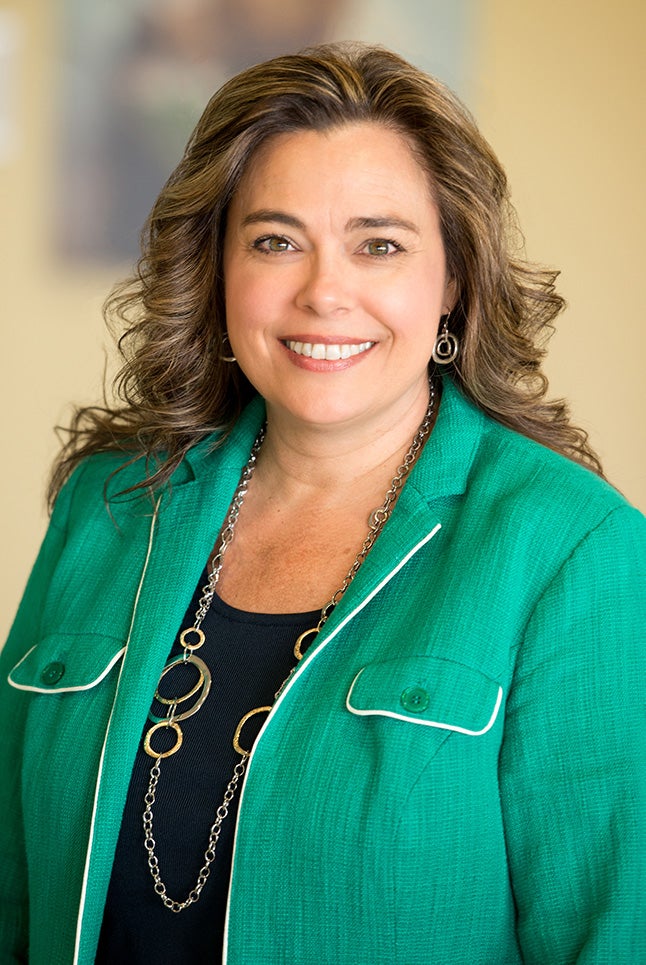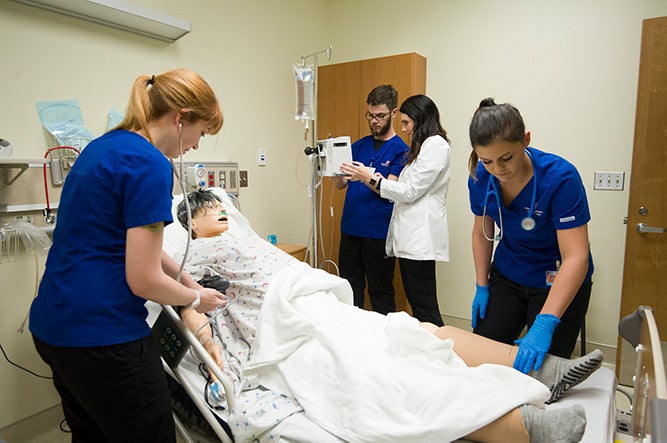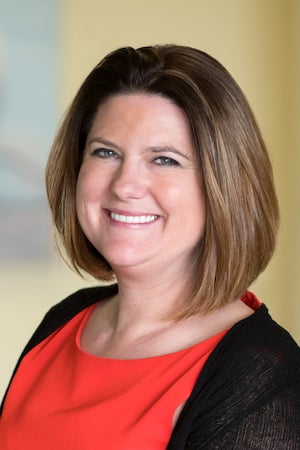Students from the School of Nursing and the College of Business and Economics are working together to address a potential “wicked business problem,” as they call it, before it becomes a reality: a large-scale nursing shortage across Idaho. By 2025, Idaho’s population is projected to increase from 1.7 to 1.9 million residents – one of the fastest projected growth rates in the country. A large number of these new residents are expected to be retirees and senior citizens, and more than a third of Idaho’s nurses are over 55 years old.
Shelle Poole and Renee Walters, clinical associate professors in the School of Nursing, are encouraging students to work across disciplines to find solutions to this problem.

“The goal is that business students understand the vertical market of healthcare, which employs the largest workforce in the state of Idaho,” Poole said.
Nursing and business faculty developed an interdisciplinary project to assign students courses related to business strategy, nursing leadership and management. The students were asked to present a solution to a current, pressing problem in the healthcare industry. The project inspired students to approach the problem from a variety of angles, from increasing the number of patients nurses can treat to addressing the abilities of educational institutions.
Poole and Walters answered questions about the nursing shortage and students’ novel solutions in the following Q and A:
How did Idaho wind up on the path to a nursing shortage, and what can Idahoans expect if it goes unchecked?
Idaho’s educational systems are currently capable of training roughly 750 new nurses per year. Boise State must increase graduates by more than 400 additional nurses per year in order to provide enough nurses for the growing population. This will require expansions in funding for students, training materials and instructors, as well as classroom space to hold them.
In addition to providing enough trained nurses, Idaho has a retention problem: average salaries are higher in Washington and California, so many nursing graduates leave Idaho for better-paying jobs in other states. The nursing shortage could mean greater competition between medical providers for staff members or the hiring of inexperienced and overworked nurses. All of these things can lead to significant financial losses, legal issues and lawsuits, and patient injury.

Why is this issue important to both nursing and business students?
The healthcare industry is one of the fastest-growing industries in the U.S. and is estimated to account for about a third of total job growth by 2026, according to a U.S. Bureau of Labor Statistics 2017 report. Students graduating from the School of Nursing or College of Business and Economics are likely to enter the healthcare industry as healthcare practitioners, administrators and managers. Boise State is preparing students to fill these roles, serve the growing population and solve the problems that come with it.
“It is essential for nurses to understand the business in which they work because they are trained in bedside manner and patient care, but they are not necessarily trained in ‘What does it mean to be part of a business?’,” said Poole. “Healthcare systems are businesses.”
How is Boise State preparing students to serve Idahoans and address the nursing shortage?
Boise State decided to address Idaho’s nursing shortage problem with a spring 2019 capstone project. Nursing and business students were provided with background information on the issue, including statistics and timelines. Over the course of the semester, they brainstormed and developed ideas as a team. At the end of the course, teams proposed their solutions to the nursing shortage to a “practice” board of directors, outlining resource and time constraints, projected timelines and returns on investments.

What did the students bring to the table?
“In Idaho, we have plenty of nursing students, but what we lack are teaching faculty and preceptors,” said Jessica Fear, a spring 2019 graduate with a bachelor’s degree in nursing. Preceptors are staff nurses at hospitals and clinics who act as mentors for newly employed nurses. With more and more nurses retiring from Idaho hospitals, the number of willing and able preceptors is decreasing.
Fear’s group proposed implementing artificial intelligence (AI) programs in clinical assessments. By using AI subjects, colleges and universities would no longer need one faculty member for each nursing student during a clinical assessment. Instead, one faculty member could oversee up to 20 nursing students at a time, allowing institutions to increase graduates without having to search for and hire new faculty members.

Houda Abdulrahman, who earned a bachelor’s degree in international business in the spring semester of 2019, proposed a program that encourages retiring nurses to transition to part-time work instead of leaving the workforce altogether.
“Should the nurses decide to participate in the program, the employer would offer full-time benefits even though [these nurses] are working part-time,” she said.
She believes this kind of program may help buy Idaho some time as other programs are implemented at the education and business levels.
Another proposed solution is Telehealth, a long-distance communication system aimed at providing healthcare to more rural areas of Idaho. Telehealth uses video and audio calls to allow healthcare practitioners to observe and recommend treatment to patients in remote locations, where healthcare practitioners either do not or cannot work due to facility or resource restrictions.
Students within both colleges benefit from relevant, interdisciplinary capstone projects.
“Interactions outside of their discipline will enhance their effectiveness as communicators as well as their skills in problem-solving, collaboration and creative thinking,” said Walters. “Developing a deep-seated appreciation for the unique value and contribution of others is a core value in healthcare.”